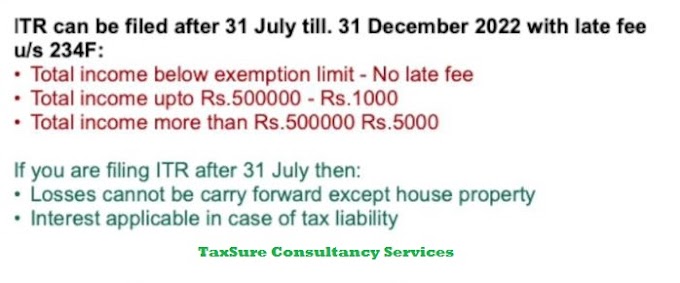CBIC has issued Clarifications on procedure to be followed in respect of goods sent/ taken out of India for exhibition or on consignment basis for export promotion under the GST Law, like treatment of goods sent/ taken out of India which partly crystallise into exports after a gap of certain period from the date they were physically sent / taken out of India.

Subject: Clarification in respect of goods sent/taken out of India for exhibition or on consignment basis for export promotion – reg.
1. Various representations have been received from the trade and industry regarding procedure to be followed in respect of goods sent / taken out of India for exhibition or on consignment basis for export promotion. Such goods sent / taken out of India crystallise into exports, wholly or partly, only after a gap of certain period from the date they were physically sent / taken out of India.
2. The matter has been examined and in view of the difficulties being faced by the trade and industry and to ensure uniformity in the implementation of the provisions of the law across the field formations, the Board, in exercise of its powers conferred under section 168(1) of the Central Goods and Services Tax Act, 2017 (hereinafter referred to as the “CGST Act”) hereby clarifies various issues in succeeding paragraphs.
3. As per section 7 of the CGST Act, for any activity or transaction to be considered a supply, it must satisfy twin tests namely-
(i) it should be for a consideration by a person; and
(ii) it should be in the course or furtherance of business.
4. The exceptions to the above are the activities enumerated in Schedule I of the CGST Act which are treated as supply even if made without consideration. Further, sub-section (21) of section 2 of the Integrated Goods and Services Tax Act, 2017 (hereinafter referred to as the “IGST Act”) defines “supply”, wherein it is clearly stated that it shall have the same meaning as assigned to it in section 7 of the CGST Act.
5. Section 16 of the IGST Act deals with “Zero rated supply”. The provisions contained in the said section read as under:
16. (1) “zero rated supply” means any of the following supplies of goods or services or both, namely:–
(a) export of goods or services or both; or
(b) supply of goods or services or both to a Special Economic Zone developer or a Special Economic Zone unit.
Therefore, it can be concluded that only such ‘supplies’ which are either ‘export’ or are ‘supply to SEZ unit/ developer’ would qualify as zero-rated supply.
6. It is, accordingly, clarified that the activity of sending/ taking the goods out of India for exhibition or on consignment basis for export promotion, except when such activity satisfy the tests laid down in Schedule I of the CGST Act (hereinafter referred to as the “specified goods”), do not constitute supply as the said activity does not fall within the scope of section 7 of the CGST Act as there is no consideration at that point in time. Since such activity is not a supply, the same cannot be considered as “Zero rated supply‟ as per the provisions contained in section 16 of the IGST Act.
7. Since the activity of sending/ taking specified goods out of India is not a supply, doubts have been raised by the trade and industry on issues relating to maintenance of records, issuance of delivery challan/ tax invoice etc. These issues have been examined and the clarification on each of these points is as under: –
| Sl. | Issue | Clarification |
| 1 | Whether any records are required to be maintained by registered person for sending / taking specified goods out of India? | The registered person dealing in specified goods shall maintain a record of such goods as per the format at Annexure to this Circular. |
| 2 | What is the documentation required for sending / taking the specified goods out of India? | a) As clarified above, the activity of sending / taking specified goods out of India is not a supply. b) The said activity is in the nature of “sale on approval basis” wherein the goods are sent / taken outside India for the approval of the person located abroad and it is only when the said goods are approved that the actual supply from the exporter located in India to the importer located abroad takes place. The activity of sending / taking specified goods is covered under the provisions of sub-section (7) of section 31 of the CGST Act read with rule 55 of Central Goods & Services Tax Rules, 2017 (hereinafter referred to as the “CGST Rules”). c) The specified goods shall be accompanied with a delivery challan issued in accordance with the provisions contained in rule 55 of the CGST Rules. d) As clarified in paragraph 6 above, the activity of sending / taking specified goods out of India is not a zero-rated supply. That being the case, execution of a bond or LUT, as required under section 16 of the IGST Act, is not required. |
| 3 | When is the supply of specified goods sent / taken out of India said to take place? | a) The specified goods sent / taken out of India are required to be either sold or brought back within the stipulated period of six months from the date of removal as per the provisions contained in sub-section (7) of section 31 of the CGST Act. b) The supply would be deemed to have taken place, on the expiry of six months from the date of removal, if the specified goods are neither sold abroad nor brought back within the said period. c) If the specified goods are sold abroad, fully or partially, within the specified period of six months, the supply is effected, in respect of quantity so sold, on the date of such sale. |
| 4 | Whether invoice is required to be issued when the specified goods sent / taken out of India are not brought back, either fully or partially, within the stipulated period? | a) When the specified goods sent / taken out of India have been sold fully or partially, within the stipulated period of six months, as laid down in sub-section (7) of section 31 of the CGST Act, the sender shall issue a tax invoice in respect of such quantity of specified goods which has been sold abroad, in accordance with the provisions contained in section 12 and section 31 of the CGST Act read with rule 46 of the CGST Rules. b) When the specified goods sent / taken out of India have neither been sold nor brought back, either fully or partially, within the stipulated period of six months, as laid down in sub-section (7) of section 31 of the CGST Act, the sender shall issue a tax invoice on the date of expiry of six months from the date of removal, in respect of such quantity of specified goods which have neither been sold nor brought back, in accordance with the provisions contained in section 12 and section 31 of the CGST Act read with rule 46 of the CGST Rules. |
| 5 | Whether the refund claims can be preferred in respect of specified goods sent / taken out of India but not brought back? | a) As clarified in para 5 above, the activity of sending / taking specified goods out of India is not a zero-rated supply. That being the case, the sender of goods cannot prefer any refund claim when the specified goods are sent / taken out of India. b) It has further been clarified in answer to question no. 3 above that the supply would be deemed to have taken place: (i) on the date of expiry of six months from the date of removal, if the specified goods are neither sold nor brought back within the said period; or (ii) on the date of sale, in respect of such quantity of specified goods which have been sold abroad within the specified period of six months. c) It is clarified accordingly that the sender can prefer refund claim even when the specified goods were sent / taken out of India without execution of a bond or LUT, if he is otherwise eligible for refund as per the provisions contained in sub-section (3) of section 54 the CGST Act read with sub-rule (4) of rule 89 of the CGST Rules, in respect of zero rated supply of goods after he has issued the tax invoice on the dates as has been clarified in answer to the question no. 4 above. It is further clarified that refund claim cannot be preferred under rule 96 of CGST Rules as supply is taking place at a time after the goods have already been sent / taken out of India earlier. |
8. The above position is explained by way of illustrations below:
Illustrations:
i) M/s ABC sends 100 units of specified goods out of India. The activity of merely sending / taking such specified goods out of India is not a supply. No tax invoice is required to be issued in this case but the specified goods shall be accompanied with a delivery challan issued in accordance with the provisions contained in rule 55 of the CGST Rules. In case the entire quantity of specified goods is brought back within the stipulated period of six months from the date of removal, no tax invoice is required to be issued as no supply has taken place in such a case. In case, however, the entire quantity of specified goods is neither sold nor brought back within six months from the date of removal, a tax invoice would be required to be issued for entire 100 units of specified goods in accordance with the provisions contained in section 12 and section 31 of the CGST Act read with rule 46 of the CGST Rules within the time period stipulated under sub-section (7) of section 31 of the CGST Act.
ii) M/s ABC sends 100 units of specified goods out of India. The activity of sending / taking such specified goods out of India is not a supply. No tax invoice is required to be issued in this case but the specified goods shall be accompanied with a delivery challan issued in accordance with the provisions contained in rule 55 of the CGST Rules. If 10 units of specified goods are sold abroad say after one month of sending / taking out and another 50 units are sold say after two months of sending / taking out, a tax invoice would be required to be issued for 10 units and 50 units, as the case may be, at the time of each of such sale in accordance with the provisions contained in section 12 and section 31 of the CGST Act read with rule 46 of the CGST Rules. If the remaining 40 units are not brought back within the stipulated period of six months from the date of removal, a tax invoice would be required to be issued for 40 units in accordance with the provisions contained in section 12 and section 31 of the CGST Act read with rule 46 of the CGST Rules. Further, M/s ABC may claim refund of accumulated input tax credit in accordance with the provisions contained in subsection (3) of section 54 of the CGST Act read with sub-rule (4) of rule 89 of the CGST Rules in respect of zero-rated supply of 60 units.




0 Comments